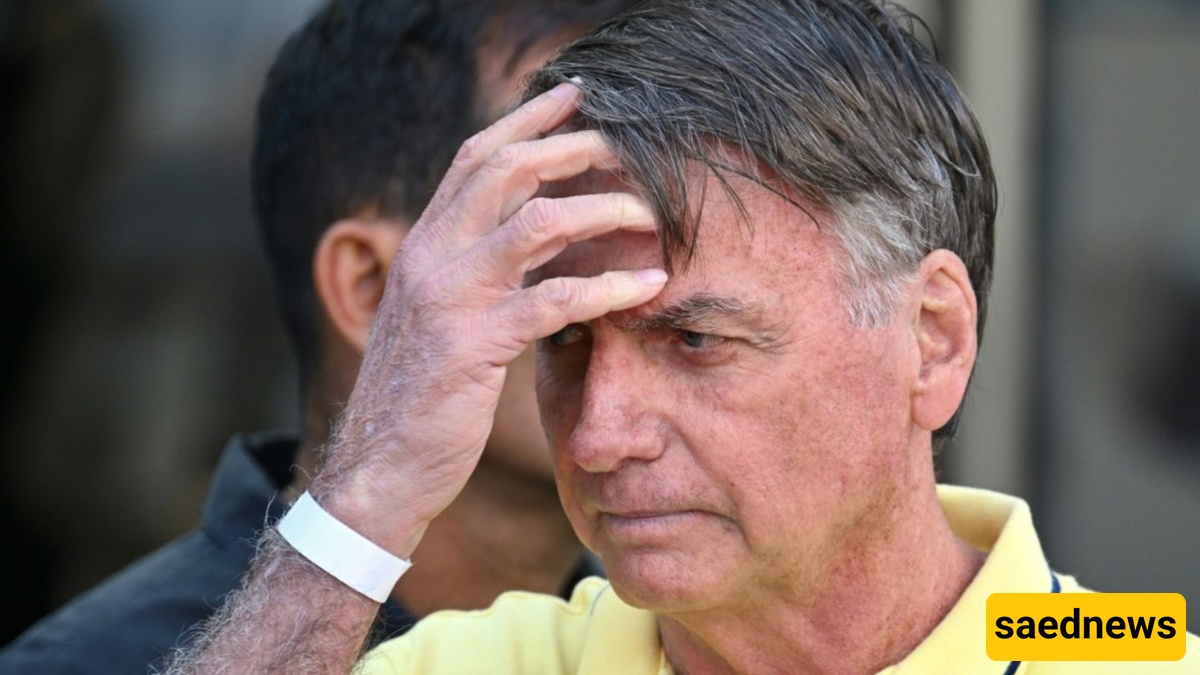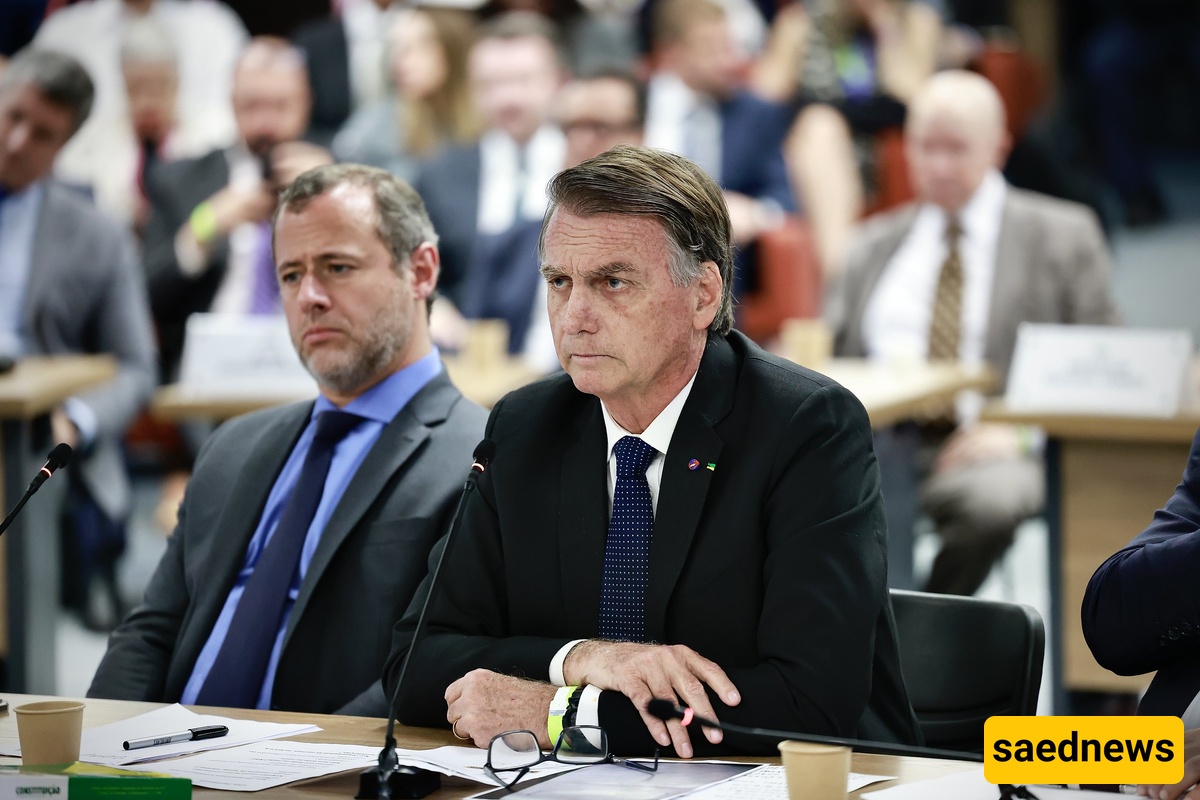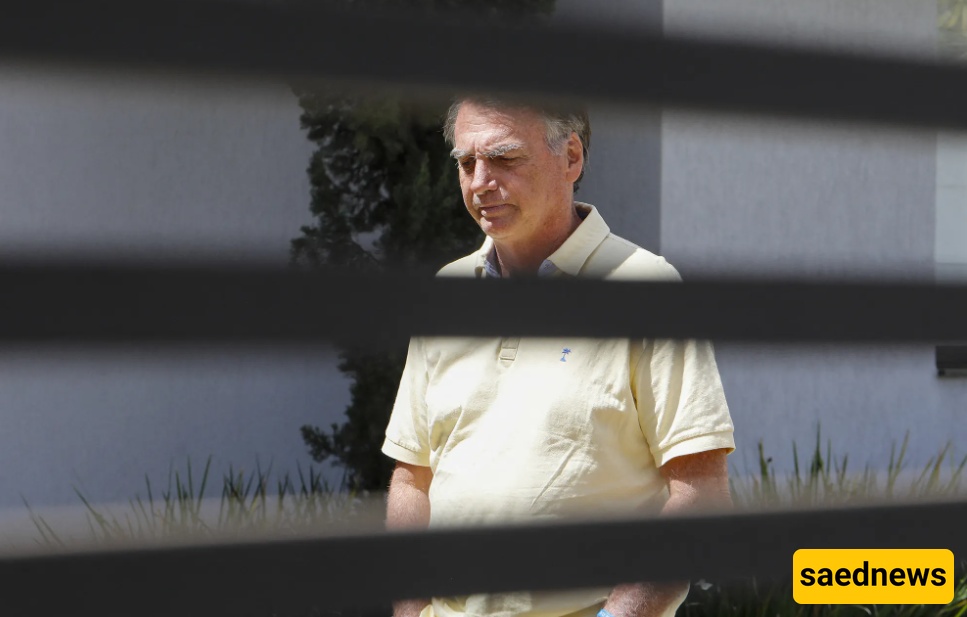SAEDNEWS: Brazil’s former president Jair Bolsonaro has been convicted over his role in the 2022 coup attempt, facing prison time, political ineligibility, and heavy fines. Here are the key questions and answers about what comes next.

According to Saed News; Brazil’s political landscape was rocked this week when former president Jair Bolsonaro and seven co-defendants were convicted for their involvement in the failed coup attempt of 2022. The decision, delivered by the First Panel of Brazil’s Supreme Federal Court (STF), goes far beyond prison sentences. It also includes civil penalties such as political ineligibility, loss of public office, and the payment of 30 million reais in collective moral damages.
While the ruling is historic, it also raises immediate questions: When will Bolsonaro go to prison? What appeals are possible? And how will this reshape Brazil’s political future?
Yes. Defense lawyers are already preparing appeals based on the judges’ votes. Two legal mechanisms are available: embargos de declaração (appeals pointing to contradictions or unclear points in the ruling) and embargos infringentes (only applicable if at least two justices vote for acquittal, which did not happen here).
While such appeals rarely change the outcome, lawyers may try to use them to reduce sentences or argue for statute of limitations.

The defendants, including Bolsonaro, will not be jailed immediately. Prison terms only begin after all appeals are exhausted—known as “transit in rem judicatam.” According to the STF, once second appeals are dismissed, further filings may be considered dilatory tactics, allowing sentences to be enforced.
Bolsonaro is currently under house arrest, imposed by Justice Alexandre de Moraes in August for allegedly interfering with the investigation. His defense may request that this time be deducted from the final sentence, but the court will decide.

The court imposed both reclusão (for serious crimes, requiring closed-regime prisons) and detenção (for lighter offenses, which allow semi-open or open regimes). Because most sentences exceed eight years, at least seven of the convicted must begin in closed-regime facilities.
Ironically, Bolsonaro himself signed the “Anti-Crime Package” law that tightened rules on sentence progression. Now, inmates must serve between 16% and 70% of their sentences before moving to a lighter regime, depending on crime severity, violence involved, and whether they are repeat offenders.
The ruling invokes the Lei da Ficha Limpa (Clean Record Law), rendering Bolsonaro and others ineligible for election for eight years after completing their prison terms. This extends Bolsonaro’s existing electoral ban—already in place until 2030—by several more years.
Additionally, once the ruling is final, their political rights will be suspended entirely, preventing them from voting or running for office.
The group must pay 30 million reais in damages collectively. This means any one defendant could be held liable for the full amount. Funds will be channeled into public-interest programs managed under Brazil’s civil action laws.
Fines based on Brazil’s minimum wage will also be applied once sentences begin, supporting public security and prison management funds.
Once appeals are exhausted, the Federal Police will formalize the loss of office for Ramagem and Torres, in addition to other civil penalties.
While Bolsonaro’s defense team vows to fight the conviction, the political damage may already be irreversible. Even if he delays prison time through appeals, his long-term ineligibility and the stigma of conviction cast a long shadow over his future.
Brazil’s Supreme Court, under Justice Alexandre de Moraes, will oversee the enforcement of penalties, prison conditions, and possible sentence adjustments for work, study, or age-related considerations.
The conviction of Jair Bolsonaro marks one of the most dramatic moments in modern Brazilian politics. It highlights the judiciary’s willingness to confront authoritarian threats while raising difficult questions about governance, justice, and political accountability. For Bolsonaro, the road ahead is uncertain, shaped by legal battles, mounting penalties, and a shrinking political horizon.

